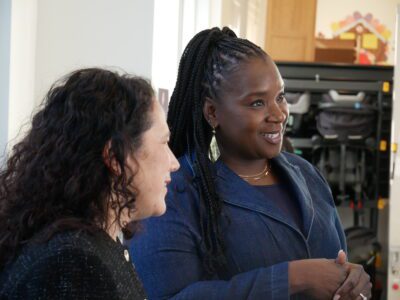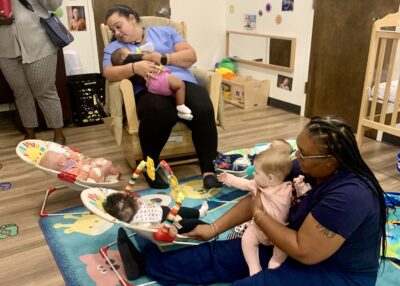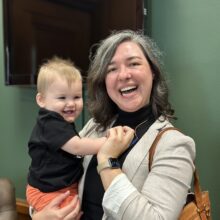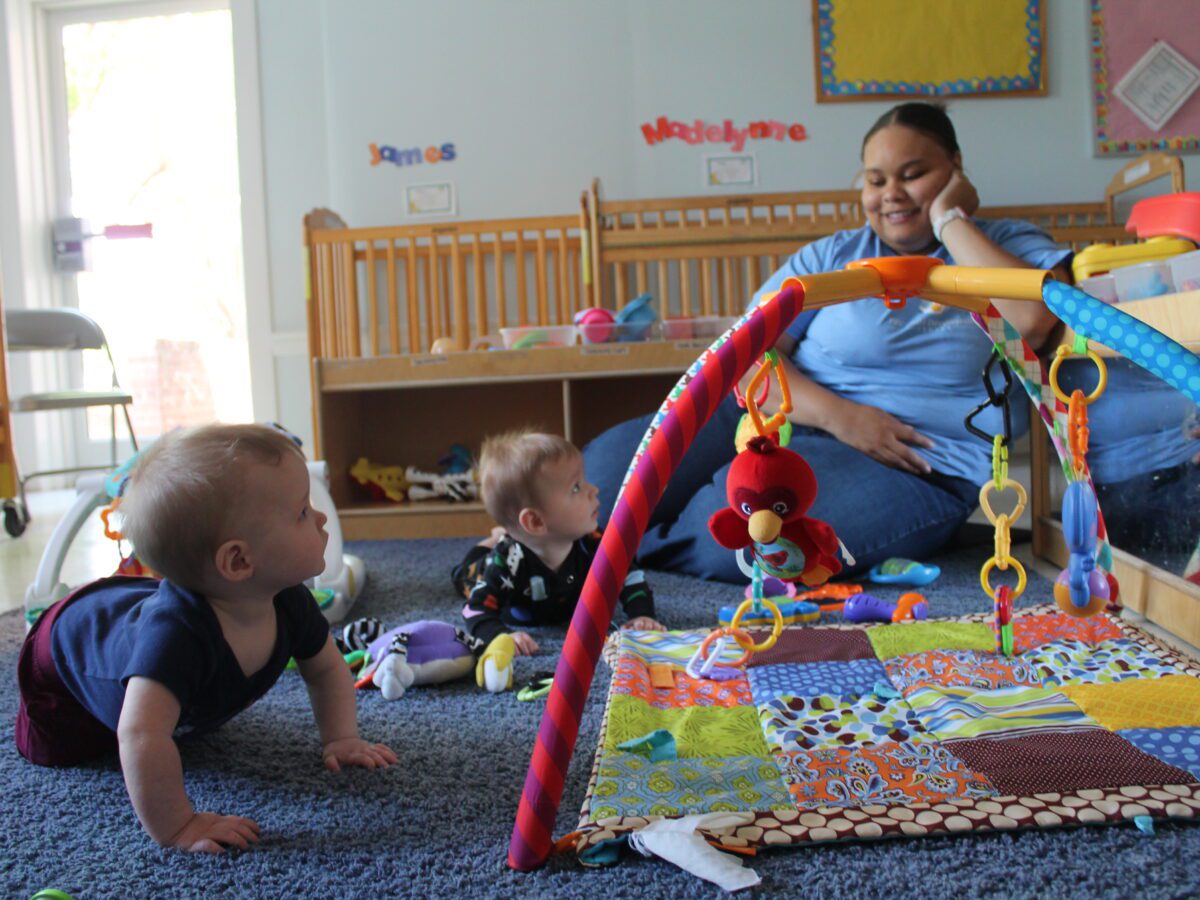
EdNC is producing a series of early childhood articles called “Profiles in Care.”
In each profile, we elevate the lived experiences of the people who are directly involved in providing early care and learning to our state’s youngest learners.
Their experiences help us understand the effects of policy decisions at the local, state, and national level on the well-being of children and families in your neighborhoods.
Marsha Hargette: Supporting students with disabilities
Marsha Hargette, executive director of the foundation that supports the Frankie Lemmon School & Development Center in Wake County, leads the fundraising and awareness campaigns that make the work of the school possible.
Hargette told us: “Children with special needs are so highly underserved. And they are being left behind at a rapid pace.”
She said the work that schools like Frankie Lemmon do is, “proof that if you can give kids in these formative years what they need… we can help build that foundation and hopefully break through ceilings that have been placed on them.”
Davina Boldin-Woods: Managing staff shortages
Davina Boldin-Woods, executive director of First Presbyterian Child Development Center in Alamance County, found herself with seven classrooms ready for infants and toddlers, but no one to staff them.
She attributed the staffing shortage — and resulting child care shortage — to low wages: Infant and toddler teachers typically earn less than $14 per hour in our state.
Boldin-Woods described benefitting from the TEACH scholarship, which supports early childhood teachers going back to school, and the Child Care WAGE$ Program, which incentivizes teacher retainment through education-based wage supplements. Boldin-Woods said she sees these programs as tools for the state to build up the early care and learning workforce.
“This is bigger than early education, that if you don’t invest here, you’re going to invest the dollar somewhere, and you’re going to end up spending more,” Boldin-Woods wanted lawmakers to know. “This is not just a parent issue, but this has a trickle-down, domino effect that will absolutely impact our economy; it impacts North Carolina.”
Sara Sampson: Filling funding gaps
Sara Sampson is executive director of Children and Youth Partnership for Dare County (CYP), the county’s Smart Start partner. The Smart Start network is made up of 75 local public-private partnerships designed to support young children and families based on local needs and priorities.
Sampson explained how Smart Start partnerships like hers get creative to fill gaps between state funding, private resources, and the growing needs of families. At CYP, that included the establishment of an endowment fund in 2017.
“We’re very fortunate to live in a very caring and giving community,” Sampson said. “We have some great donors and sponsors that have supported us over the years.”
Dr. Ellie Erickson: Increasing family engagement
Dr. Elizabeth “Ellie” Erickson, a general pediatrician for Duke Health in Durham County and an assistant professor of pediatrics at Duke University’s School of Medicine, focuses on how medical professionals can help support parents in the earliest years of her patients’ lives. This includes closing the gaps that often exist between pediatricians like herself and other folks who work on behalf of children and families.
“We all want what’s best for children, and children do not exist in a vacuum,” Erickson said. “And so policies that are going to support children are policies that support families and allow families to have capacity to care for their kids.”
Commander Heidi Koski: Providing workplace supports
Commander Heidi Koski, the commanding officer of U.S. Coast Guard Base Elizabeth City in Pasquotank County, will be breaking ground on a new military-operated child development center (CDC) in 2026.
She shared her experience moving up through the ranks as a working mom and military spouse. Aspects of her story will be familiar to working parents — military and civilian alike.
EdNC will follow the process of opening the CDC and learn more about centers at other bases throughout the state in months to come. We started by publishing this primer on what North Carolina can learn from how the military handled the child care crisis that civilians are facing now.
Early care and learning stakeholders
At the beginning of each profile, you’ll see this language:
EdNC is highlighting the experiences of educators, families, researchers, and advocates with a stake in North Carolina’s early care and learning landscape. These profiles illustrate that care and education are inseparable, especially in a child’s first five years — caregivers educate, and educators care. In this series, we refer to those profiled in the way they are known by their community.
All North Carolinians have a stake in the early care and learning of our state’s youngest learners. When these students are born, their brains contain billions of neurons, and as decades of research has shown, how those neurons interact is primarily shaped by their experiences in their first 1,000 days on our planet.
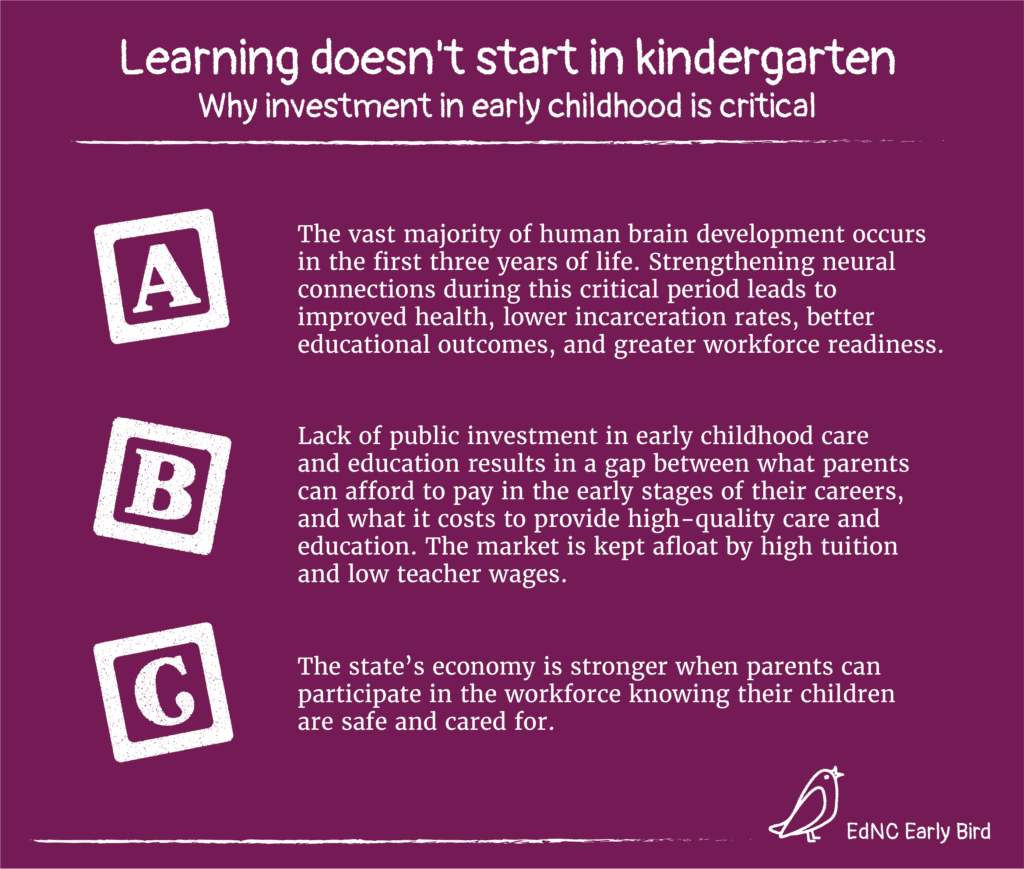
Research into K-12 public education shows that teachers are the most important factor in student achievement. Similarly, in early childhood, it’s the formation of secure attachments with trusted and caring adults — like those featured on our Profiles in Care series — that’s essential for giving our youngest students the greatest opportunity to thrive.
Recommended reading
